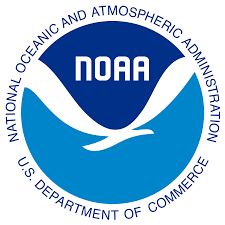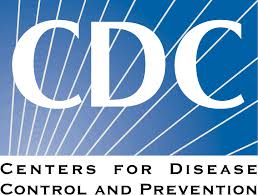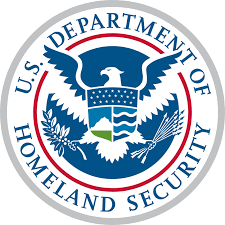Flood Publications
This page summarizes Natural Hazards Center-supported publications, which capture key insights about flood risk assessment, mapping, and communication strategies, among many other relevant topics. Most of the publications compiled below also include recommendations to reduce future harm. We hope the approaches and findings from this prior work can be used to inform the preparedness, response, recovery, and mitigation from extreme events like riverine flooding, flash flooding, and urban flooding which threaten communities nationally and globally. Please visit our Center News Story page for additional flood resources.

Quick Response Research Award Program
Since 1986, the Natural Hazards Center has administered the Quick Response Research Award Program. This program, which is made possible with funding from the National Science Foundation, encourages the ethical collection of perishable data in the aftermath of disaster. The very first Quick Response report investigated flooding in California. The following 27 Quick Response Research Reports investigate flood events and associated hazards over the last four decades, with explorations of post-flood damage and debris, considerations for public health, household recovery outcomes, and much more.
QR369 | Disaster Debris Management and the Maine Floods of 2023 (2024)
Julia Crowley
QR360 | Lessons from the 2022 Yellowstone Floods: The Power of Documentary Film Interviews (2023)
Hugo Sindelar
Additional Quick Response Flood Reports
QR250 | Understanding Household Recovery Following the Colorado Flash Floods (2013)
Andrew Rumbach, Carrie Makarewicz, Jeremy Nemeth, and Deborah Thomas
QR249 | Problems Related to the Oil and Gas Industry During a Flood Disaster: The Nature and Extent of Citizen Complaints and Satisfaction with Government Responses (2014)
Tara Opsal and Tara O’Connor Shelley
QR248 | Policy Learning and Community Recovery: Analyzing Responses to Colorado’s Extreme Flood Events of 2013 (2014)
Deserai Crow and Elizabeth Albright
QR232 | Interagency Coordination During Crisis: Experience From Flood and Landslide Response in Northwest China (2012)
Ziqiang Han
QR227 | QF2011: The Effects of the Queensland Flood on Pregnant Women, Their Pregnancies, and Their Children’s Early Development (2011)
Anne-Marie Turcotte-Tremblay, David Laplante, and Suzanne King
QR206 Risk Perception Associated with the Evacuation and Return-Entry Process of the Cedar Rapids, Iowa Flood (2008)
Laura K. Siebeneck and Thomas Cova
QR175 | Europe’s Flood Disaster of August 2002: Vienna’s Evolving Flood Mitigation Projects (2005)
Jane Preuss
QR164 | Flood Damage Assessment and Survey of Mitigation Efforts at Stump Lake, North Dakota: A Study of a Closed-basin Lake Flood (2003)
Paul E. Todhunter and Bradley C. Rundquist
QR162 | Flood Hazard Vulnerability: A Study of Tropical Storm Allison Flood Impacts and Adaptation Modes in Louisiana (2003)
Francis O. Adeola
QR118 | Flash Flooding in Kansas: A Study of Emergency Response and Victims' Perceptions (1999)
Bimal Kanti Paul
QR113 | The Mass Media, Political Fragmentation, and Environmental Injustice in Puerto Rice: A Case Study of the Floods in Barrio Tortugo (1999)
Marla Perez-Lugo
QR107 | El Nino and Perceptions of the Southern California Floods and Mudslides of 1998 (1998)
Chrys Rodrigue, Adam Henderson, James Hotchkiss, Stacy Potter, Christine M. Rodrigue, and Eugenie Rovai
QR104 | Dissociative and Posttraumatic Reactions to the Northern California flooding of 1997 (1998)
Lynn C. Waelde, Cheryl Koopman, and David Spiegel
QR97 | Public Response to the 1997 Northern California Floods (1997)
Paul W. O'Brien and James Payne
QR96 | Buffalo Creek Fire and Flood Report (1997)
Charles C. Benight and Michelle L. Harper
QR95 | The Impacts of a Second Catastrophic Flood on Property Values in Linda and Olivehurst, California (1997)
Graham A. Tobin and Burrell E. Montz
QR93 | The Environmental Impacts of Flooding in St. Maries, Idaho (1997)
Burrell E. Montz
QR86 | The Politics and Administration of Presidential Disaster Declarations: The California Floods of Winter 1995 (1996)
Richard Sylves
QR85 | The Political Impact of Information Technology on the Structure of Interorganizational Relationships During Crisis Response: The Pennsylvania Floods of 1996 (1996)
Diana Burley Gant
QR81 | Newspaper Reporting in Wake of the 1995 Spring Floods in Northern California (1996)
Ute J. Dymon and Francis P. Boscoe
QR52 | Market Gatekeepers: Their Impact On Property Values Following Flooding In Liberty County, Texas (1992)
Burrel E. Montz and Graham A. Tobin
QR50 | What We Can Learn From The February 1992 Floods In Ventura County, California (1992)
Eve Gruntfest and Vanessa Taft
QR49 | Hazardous Materials As Secondary Results Of Flooding: A Case Study Of Planning And Response (1992)
Elaine J. Denning
QR1 | The 1986 California Floods (1986)
Robert Bolin
Special Call for Research: FEMA Region 8
The Natural Hazards Center funded a special call to expand understanding of the recent hazards and disasters experienced in FEMA Region 8 and produce actionable guidance for emergency managers. Two of the final reports from this call focus on the aftermath of a catastrophic 500-year flood event that hit south-central Montana in 2022.
QR49 | Lessons from the 2022 Yellowstone Floods: The Power of Documentary Film Interviews (2023)
Hugo Sindelar
QR359 | Making Us Whole Again? Lessons From Montana Disaster Recovery (2023)
Lauren K. McKeague, Christina S. Barsky, Josephine K. Hazelton-Boyle, and M. Blake Emidy

Weather Ready Research Award Program
The Natural Hazards Center—with support from the National Science Foundation and the National Oceanic and Atmospheric Administration—established the Weather Ready Research Award Program to promote knowledge and build a diverse cadre of weather ready researchers. There are currently two final Weather Ready Research Reports on flooding as well as additional data and instrument publications. Additional Flood Ready reports focused on riverine flooding, flash flooding, and urban flooding events are forthcoming.
WR16 | Strengthening Disaster Preparedness: Assessing Risk Perception and Early Warning for Flash Flooding(2025)
Ayorinde Ogunyiola and Oluwabunmi Dada
WR1 | Examining Public Response and Climate Conditions During Overlapping Tornado and Flash Flood Warnings(2022)
Jennifer M. First, Kelsey Ellis, and Stephen Strader
Call 1: Weather Ready Research
WR1 | Examining Public Response and Climate Conditions During Overlapping Tornado and Flash Flood Warnings (2022)
Jennifer M. First, Kelsey Ellis, and Stephen Strader
Call 2: Weather Ready Instrument and Data Publications
This second call for Weather Ready Research supported the publication of social science and multidisciplinary data, data collection instruments, and research protocols for natural hazards and disaster research. To learn more, read the full Call for Weather Ready Research.
Eric Best. (2021). “Three-Dimensional Property Flood Risk Visualization Using LIDAR Data.” DesignSafe-CI. https://doi.org/10.17603/ds2-hy8t-0w64
Manyu Li and Theresa Wozencraft. (2021). "Flood/Hurricane Victims' Social, Community, and Psychological Experiences." DesignSafe-CI. https://doi.org/10.17603/ds2-8q1f-wx13
Additional Flood Instrument and Data Publications
Tara Pozzi and Vicken Hillis. (2021). “Drivers of Lidar Adoption,” in Facilitators and Barriers of Lidar Adoption for Flood Risk Management in the Pacific Northwest, US. DesignSafe-CI. https://doi.org/10.17603/ds2-3p1m-dr64
Call 5: Flood Ready Research and Data Publication
WR16 | Strengthening Disaster Preparedness: Assessing Risk Perception and Early Warning for Flash Flooding (2025)
Ayorinde Ogunyiola and Oluwabunmi Dada

Public Health Disaster Research Award Program
The Natural Hazards Center—with supplemental funding from the Centers for Disease Control and Prevention—established the Public Health Disaster Research Award Program to support public health, social science, and interdisciplinary research that can improve public health interventions. The following reports address flooding as well as other compound hazards in the U.S. territories, tribal regions, and rural communities.
Call 1: Research in U.S. Territories
PH6 | Compound Hazards, Evacuations, and Shelter Choices: Implications for Public Health Practices in the Puerto Rico and the U.S. Virgin Islands (2021)
Jennifer Collins, Amy Polen, Elizabeth Dunn, Leslie Maas Cortes, Erik Ackerson, Janis Valmond, Ernesto Morales, and Delián Colón-Burgos
PH4 | Real-Time Migration Tracking to Puerto Rico After Natural Hazard Events (2021)
Alejandro Arrieta, Shu-Ching Chen, Juan Pablo Sarmiento, and Richard Olson
Call 2: Strengthening Community Resilience in U.S. Territories
PH23 | The Public Health Implications of Social Vulnerability in the U.S. Virgin Islands (2022)
Greg Guannel, Hilary Lohmann, and Joe Dwyer
PH17 | Exploring Post-Disaster Transportation Barriers to Healthcare of Socially Vulnerable Puerto Rican Communities (2022)
Diana Ramirez-Rios, William A. Wallace, Jordan Kinsler, Norianne Martinez Viota, and Paola Mendez
Call 3: Research in U.S. Territories, Tribal Areas, and Rural Communities
PH36 | Mapping Puerto Rican Student Vulnerability and Risk To Improve School Emergency Planning (2023)
Eileen V. Segarra-Alméstica, Yolanda Cordero, and Amílcar Vélez-Flores
PH35 | Evacuation Decision-Making Post-Vaccine: Implications of Compound Hazards in U.S. Territories (2023)
Jennifer Collins, Elizabeth Dunn, Justin Hartnett, Leslie Maas Cortes, and Rashida Jones
Additional Call 3 Public Health Flood Reports
PH30| Resilience Planning With Two Tribal Governments in Virginia for Climate Hazards and Health Impacts (2023)
Nicole S. Hutton, Wie Yusuf, and Jesse Palma
PH28 | Energy Service Security for Public Health Resilience in Michigan’s Western Upper Peninsula (2023)
Shardul Tiwari, Zoē Ketola, Chelsea Schelly, and Eric Boyer-Cole
Call 4: Research in U.S. Territories, Tribal Areas, and Rural Communities
PH44 | The Compounding Effects of Disasters and Confinement on the Mental Health of Incarcerated Women (2024)
Benika Dixon, Carlee Purdum, Tara Goddard, Jennifer Toon, Marci Simmons, TyKeara Mims, and Pisila Finau
PH43 | Social Vulnerability of Refugees to Climate Disasters in the Texas Panhandle (2024)
Ming Xie and Li Chen
Additional Call 4 Public Health Flood Reports
PH38 | Municipal-Level Risk Communication Practices in Puerto Rico (2024)
Federico Subervi-Vélez, Sandra M. Fábregas-Troche, Mirelsa Modestti-González, and Gary L. Kreps

Mitigation Matters Research Award Program
The Natural Hazards Center—with supplemental funding from the Federal Emergency Management Agency—established the Mitigation Matters Research Award Program to provide funding for researchers focused on natural hazard mitigation. This program is designed to support research that can be applied to reduce loss of life and the destruction of property through reducing risk. Please see below for Mitigation Matters reports focused on flood hazard mapping, risk communication, and policymaking for the reduction of flood threats.
MM24 | Developing a New Interdisciplinary Model for Mapping Flood Risks and Impacts (2025)
Noah Bezanson, Elizabeth Reddy, Charis Boke, Sarah Kelly, and Paul Santi
View the Research Brief
MM20 | Understanding Flood Mitigation Implementation Activities in Minnesota’s Red River Basin (2024)
Sarah Kirkpatrick
View the Research Brief
Additional Flood Mitigation Matters Reports
MM18 | Zoning for Flood Risk Reduction in Five Virginia Communities: Opportunities to Improve Flood Hazard Mapping and Municipal Practice (2024)
Yang Zhang
View the Research Brief
Yan Wang, Haiyan Hao, and Seungbeom Kang
View the Research Brief
Research Counts
The Research Counts series serves as a platform for hazards and disaster scholars to provide insights about research findings and the enduring lessons of disaster, as well as to raise new questions that are worthy of exploration. The pieces in the series are brief, drawn from a variety of disciplines, and intended for a broad audience. The four articles below focus on flood related topics, including urban planning for flood control and mitigation, public health threats associated with flooding, and educational disruption during flood events.
Berke, Philip. 2017. Part I: Why is Houston so Vulnerable to Flooding? Research Counts, 1(6).
Berke, Philip. 2017. Part II: How Houston Can Learn to Build Back Better from Other Cities. Research Counts, 1(7).
Additional Flood-Related Research Counts Articles
Tierney, Kathleen. 2017. There’s Something in the Water…Research Counts, 1(3).
Breen, K. & Meyer, M. A. (2023). Disaster Impacts on College Students: Life Trajectories at Stake.Research Counts, 5(SC5). Special Collection on the Disaster Cycle.
Our Scholarship
Researchers at the Natural Hazards Center and our collaborators have published many books, edited volumes, monographs, peer-reviewed journal articles, and book chapters. Some of the earliest publications listed here come from the Natural Hazard Center’s founding director, Gilbert F. White, who has been referred to as the "father of floodplain management.” See below for a selection of flood-related research publications and readings.
Books and Monographs
Wescoat, James L. Jr., and Gilbert F. White. 2003. Water for Life: Water Management and Environmental Policy. Cambridge, UK: Cambridge University Press.
White, Gilbert F. 1977. Environmental Effects of Complex River Development. New York: Routledge.
Journal Articles
Chisty, Musabber Ali, Nesar Ahmed Khan, Syeda Erena Alam Dola, Israt Aris Sumaya, and Md. Mostafizur Rahman. 2023. “Knowledge, Attitude, and Practice Toward Flood Volunteerism in Bangladesh: A Gender-Based Analysis with Policy Implications.” Global Social Welfare.https://doi.org/10.1007/s40609-023-00276-9
van de Lindt, John, Walter Gillis Peacock, Judith Mitrani-Reiser, Nathanael Rosenheim, Derya Deniz, Maria Dillard, Tori Tomiczek, Maria Koliou, Andrew Graettinger, Shane Crawford, Kenneth Harrison, Andre Barbosa, Jennifer Tobin, Jennifer Helgeson, Lori Peek, Mehrdad Memari, Elaina Sutley, Sara Hamideh, Donghwan Gu, Stephen Cauffman, and Juan Fung. 2020. “Community Resilience-Focused Technical Investigation of the 2016 Lumberton, North Carolina Flood: An Interdisciplinary Approach.” Natural Hazards Review 21(3): 04020029. https://doi.org/10.1061/(ASCE)NH.1527-6996.0000387
Additional Flood-Related Journal Articles
White, Gilbert F. 1995. “Decision or Procrastination in Floodplain Management.” Water Resources Update 97: 52–55.
Myers, Mary F., and Gilbert F. White. 1993. “The Challenge of the Mississippi Flood.” Environment: Science and Policy for Sustainable Development 35(10): 6-35. https://doi.org/10.1080/00139157.2019.1637675
Thompson, Stephen A., and Gilbert F. White. 1985. “A National Floodplain Map.” Journal of Soil and Water Conservation 40(5): 417–19.
Gruntfest, Eve, Gilbert F. White, and Thomas C. Downing. 1978. “Big Thompson Flood Exposes Need for Better Flood Reaction System to Save Lives.” Civil Engineering—ASCE48(2): 72–73.
Books Chapters
White, Gilbert F. 2000. “Lessons for Flood Hazard and Disaster Management from the International Decade and Future Challenges.” Pp. 271-75 in Floods, edited by D. J. Parker. New York: Routledge.
Tierney, Kathleen, Joanne M. Nigg, and James M. Dahlhamer. 1996. "The Impact of the 1993 Midwest Floods: Business Vulnerability and Disruption in Des Moines." Pp. 214-233 in Cities and Disaster: North American Studies in Emergency Management, edited by R. T. Sylves and W. L. Waugh, Jr. Springfield, IL: Charles C. Thomas.
Additional Flood-Related Book Chapters
White, Gilbert F. 1994. “Floodplains.” Pp. 256-60 in The Encyclopedia of the Environment, edited by R. A. Eblen and W. R. Eblen. Boston: Houghton Mifflin.
White, Gilbert F. 1994. “Floodplains.” Pp. 256-60 in The Encyclopedia of the Environment, edited by R. A. Eblen and W. R. Eblen. Boston: Houghton Mifflin.
White, Gilbert F. 1988. “When May a Post-Audit Teach Lessons?” Pp. 53-63 in The Flood Control Challenge: Past, Present, and Future, edited by H. Rosen and M. Reuss. Chicago: Public Works Historical Society.
White, Gilbert F. 1986. “Assessment of Flood Risk.” In Violent Forces of Nature, edited by R. H. Maybury. Mt. Airy, MD: Lomand Publications.